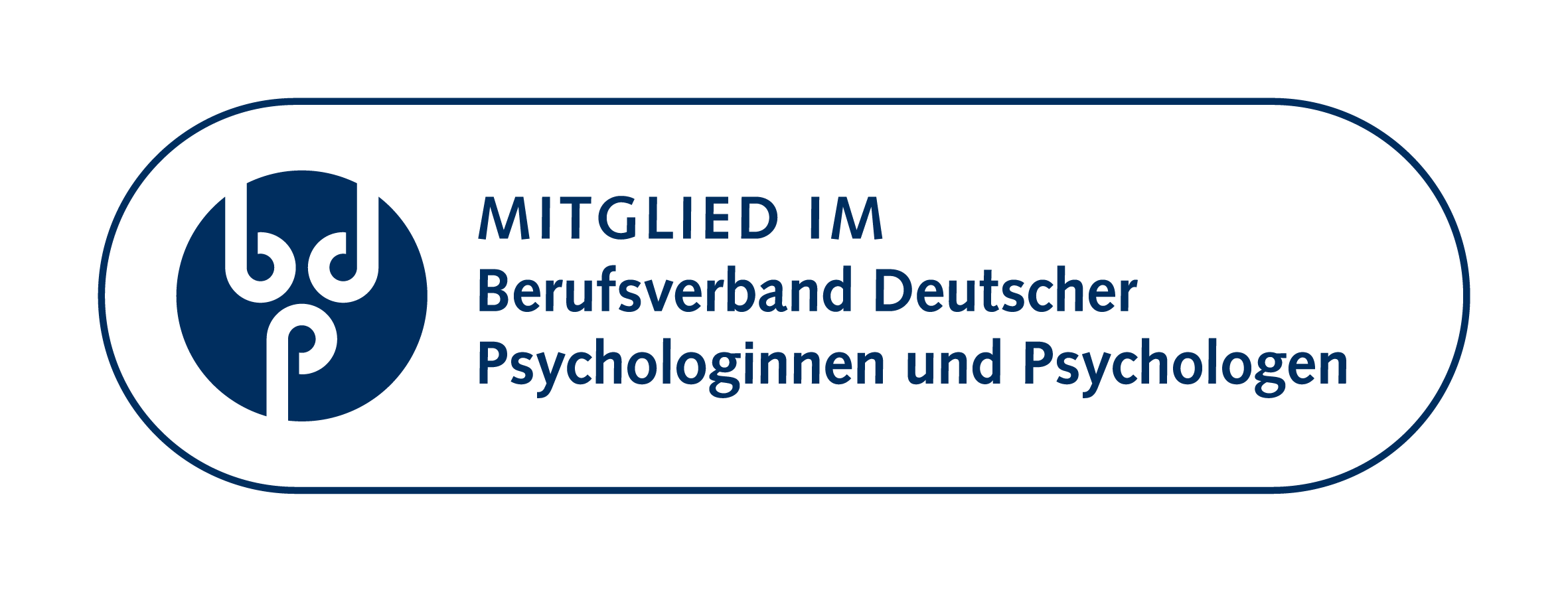Feeling Nervous Before Your Therapy Session? 10 Tips from a Psychologist
Feeling Nervous Before Your Therapy Session? 10 Tips from a Psychologist
7 Min. reading time · 10. April 2024
7 Min. reading time · 10. April 2024

Key Takeaways:
The decision to start therapy can often be accompanied by mixed feelings. It's normal to feel uncertain, anxious, or nervous, especially if it's your first time. But don't worry, you're not alone. Many people feel the same way. In this article, I'd like to offer you some tips on how to manage nervousness before your first therapy session. These tips are based on my experience as an online psychologist and are designed to help you prepare for your therapy and get the most out of your sessions. So, let's get started!
Table of Contents here
The first step towards improving your mental well-being is often the most challenging. It takes courage to admit you need help, and even more courage to actually seek that help.
Many people fear the stigma associated with therapy, or they are afraid to confront their problems.
If you've decided to pursue therapy, you've already taken a significant and crucial step. You should be proud of yourself, as it's a sign of strength and self-care to seek professional help.
Here, I want to emphasize the importance of also acknowledging negative feelings. As mentioned in “Psychologie Heute”:
All "unpleasant feelings" carry information about what is truly happening. Sadness indicates a loss, fear points to a real or potential threat, as well as a lack of protection and security, hurt and anger signal injuries, injustices, and boundary violations, and a bad mood suggests a diffuse dissatisfaction with something not yet clearly understood. Source
So, congratulate yourself on your courage and remember that every step you take on this path is a step towards a healthier life.
You are worthy of this!
It's completely normal to feel nervous before your first meeting with a therapist. One way to ease this nervousness could be a prior phone consultation. This gives you the opportunity to get to know the therapist and ask some questions before you meet in person.
Here are five questions you might consider asking:
Remember, it's your right to ask these questions, and many therapists even expect you to. They understand that choosing a therapist is a big decision and that you might even feel a little anxious about the first session.
It can be very helpful to tell someone you trust about your decision to start therapy. This person can offer you support and check in on how you're feeling after a therapy session.
It's good to have someone with whom you can share your thoughts and feelings, and who can remind you that you're not alone.
You don't have to go into detail if you don't want to. It's enough to simply say that you're starting therapy and that you appreciate your friend's support.
Remember, you decide how much you want to share.
It's completely normal to feel a bit unsure during your first meeting with a therapist. After all, you're meeting a stranger and are expected to talk about things that might feel uncomfortable. Where do you even begin? Don't worry, a therapist is a trained professional who will gently put you at ease and guide the first session.
Nevertheless, it can be helpful to be prepared and know what you'd like to discuss in therapy. This can reduce nervousness. Before the session, create a list of topics you want to bring up and bring it with you to the session. This can help you focus and stay on track.

You don't need to worry about creating a detailed list of topics for your first therapy session. In fact, brief keywords are perfectly sufficient and can serve as prompts.
Here are five self-reflection questions that can help you organize your thoughts and decide what you'd like to discuss in therapy:
As an online psychologist, I ask my clients these questions in our first session, especially if I notice they haven't thought much about themselves yet.
These questions can help you prepare for your first therapy session and get the most out of your therapy.
Your life story and personal experiences shape who you are and how you view the world. It can be helpful to reflect on significant events or relationships in your life and how they have influenced you.
Perhaps there are certain patterns or themes that keep reappearing and that you'd like to address in therapy.
It's also important to reflect on positive experiences and strengths you've utilized during challenging times.
By reflecting on your life story, you can develop a deeper understanding of yourself and better understand what you hope to gain from therapy.
Your well-being is very important in therapy, and that includes feeling comfortable in your clothing.
You don't need to dress up or present yourself in a particular way. Just be yourself.
If you feel more comfortable in casual clothes, wear them. If you prefer to dress a bit more formally, that's perfectly fine too.
Remember, therapy is about you. You should feel safe and relaxed.
So, wear whatever you like and what makes you feel most comfortable. This can help you feel more relaxed during the therapy session.
In therapy, there's no “right” or “wrong.” It's about exploring your thoughts and feelings. Your therapist is there to help you, not to judge you.
You can speak freely and address anything that's on your mind.
If you don't know what to say, that's perfectly fine too. Your therapist can help guide the conversation in a helpful direction.
Worth Reading: 10 Signs That Your Online Psychologist Is the Right Fit
It's normal not to always find the right words. Give yourself permission to express yourself in the way that feels most natural to you.
Remember, therapy is a process. It's okay if you don't have all the answers right away.
Over time, you'll learn to express yourself more effectively and better understand your feelings and thoughts.
In therapy, honesty is crucial. Your therapist can only help you effectively if they know what you are truly experiencing. Therapists are trained to create a safe and trustworthy environment.
Everything you share in therapy remains confidential.
So, you can speak openly about your thoughts, feelings, and experiences.
When you are honest, your therapist can better understand what you're going through and can provide you with the best strategies and tools to help you.
Remember, it's okay if you can't share everything right away.
Openness and honesty can grow over time as you build a stronger relationship with your therapist.
It's important that you know why you are starting therapy. This "why" can help you stay focused and motivated. Perhaps you want to change certain behaviors, feel better, or learn to cope with difficult situations.
Whatever your "why" is, it's an important part of your healing process.
Your therapist will use this "why" to create a treatment plan tailored to your specific needs and goals.
It's okay if your "why" changes over time. Therapy is a process, and it's normal for your goals and needs to evolve as you make progress.
So, take some time to reflect on your "why."
It will help you get the most out of your therapy.
It is absolutely fine, and even very helpful, to ask your therapist questions. This can contribute to building a stronger relationship with your therapist and help you feel more comfortable in therapy.
Perhaps you have questions about their experience, their approach to therapy, or what you can expect from therapy.
Whatever it is, don't hesitate to bring it up.
Remember, therapy is a space for you to learn and grow. Every question you have is a step on that path.
Updated on: 11. Juli 2025
These articles might also interest you:
Is Psychological Counseling Right for You?
Is Your Online Psychologist the Right Fit?
When is a Relationship Truly Beyond Saving? A Psychologist Clarifies.
Psychologist Reveals: 8 Signs of a Narcissistic Girlfriend
A Psychologist Reveals: 5 Reasons Why Relationships Falter
"No more endless waiting lists"
Begin your journey immediately. You can schedule your first session within days, not months.
"Therapy that fits your life"
Evening sessions after work? Weekend appointments? Patric is here for you, not just during traditional office hours.
"Save time, money & stress"
No gas expenses, no parking fees, no commute time. Simply connect from the comfort of your home. Save precious time.
Step 1 of 4






25+ Customer Reviews
You can find more current reviews on my Google profile.
Hats off!
I would give Patric a whole starry sky for his professional, human and authentic being and doing. Hats off! Our deep dive conversations, full of reflection opportunities, development chances and growth impulses give me valuable insights into my own inner compass. From the heart, I can recommend Patric as a 5-star coach who masterfully practices the art of psychological counseling - with great joy, a touch of humor and lots of lightness. Thank you, Patric!

What a life-affirming mindset
Patrick has a very open, understanding and empathetic way of conducting conversations, this and his life-affirming but at the same time realistic mindset makes it easy to open up and talk about problems/difficulties. He manages to create a safe space with a pleasant atmosphere for the conversations within a short time. Thank you

My emotional jungle
In the conversations with Patric, I quickly felt very comfortable. He meets you at eye level, is attentive, warm, there's also laughter and he naturally listens very well. Thank you for walking together through my emotional jungle and stopping and looking more closely where it was necessary! This helps to handle the jungle better.

I hope you can help many more
Patrick is empathetic and addresses my concerns and worries. Despite the online sessions, Patrick can establish a good connection with me. I feel comfortable and trusted in the conversations with him and we continue to work on dissolving limiting beliefs. Thank you very much Patric. Greetings from Amsterdam

Mr. P. is the right choice
I had the pleasure of meeting Mr. P. when I was looking for professional and empathetic psychological support. In the following months, I was impressed. He has proven to be a true expert in the field of psychology. He knows how to engage with the person and address their specific needs and concerns. I always felt respected and understood. He was empathetic and compassionate. He creates a warm and welcoming atmosphere that made it easy for me to open up and share my deepest fears and worries. If you are looking for a psychologist who is truly capable of helping you, then Mr. P. is the right choice.

Impulses that open your eyes!
Patric remains completely true to his name. As Mr. Pförtner (doorkeeper), he tried to close the door to my past with clarity and new awareness. So that a new door can then open. The one into a new phase of life after a highly transformative time of my healing. He opened my eyes through certain impulses... gave me new eyes. As a meaning-maker, I became a winner and moved away from being a victim. With this sublime feeling for myself and the keys that Patric gave me, I thank him from the bottom of my heart. May he also lead you to yourself and your inner peace. That's where his gift lies. Kera🦋

Dedication and passion
Patric was there for me when I experienced a major and unexpected crisis in my life. His support went far beyond what I would have expected from a psychologist. The dedication and passion he puts into his work is even more impressive in hindsight, because I only found him through pure luck when I was desperately searching for an online psychologist. I can only warmly recommend working with Patric. He is not only an extremely competent professional, but also an exceptionally empathetic and caring person. I will continue to work with Patric and consider myself lucky to be able to count on him.

Opening up becomes natural!
First I would like to appreciate the time he took to help me. Patric has the energy that will comfort you and opening up becomes natural. He gave me techniques to try that helps me when I have an anxiety attack. He left me feeling human again and the thought that humans are not perfect and that is okay.

A help for big and deep worries
Two open ears and well-considered advice. No problem seems impossible, no question is sent out into the world without an answer. A help for big, especially deep worries, or simply a stable guide for everyday life. Reliable, friendly, understandable, as well as understanding.

I am grateful for the many exciting sessions
Patric combines scientific insights with practical help that can be directly integrated into everyday life. I am grateful for the many exciting sessions and the results achieved🙏

Lightness
He gave me lightness during a very difficult time

Constructive and uplifting
The conversations with Mr. Pförtner were very constructive and uplifting. There was a personal touch and at the same time an objective steering of the topic, which I liked.

Best psychologist
Best psychologist you could ever imagine! I am grateful to have Patric as my psychologist!

Then secure your non-binding initial consultation with psychologist Patric Pförtner now.
Free Initial ConsultationNo diagnoses are made in my psychological online counseling. Please note that the counseling provided here does not constitute psychotherapy within the meaning of the PsychThG. According to German law, psychotherapy can currently only take place through personal contact. Before treatment, the psychotherapist makes a diagnosis. They determine what illness you have, for example 'Depressive Episode', 'Social Phobia'.
In case of acute psychological crises, contact a licensed psychiatrist or psychotherapist in your area. In urgent cases outside office hours, contact the medical emergency service of the Association of Statutory Health Insurance Physicians at the free phone number 116 117. In life-threatening cases, please call the emergency services at emergency number 112.

Your first step
The thought of counseling with a psychologist may initially be somewhat unsettling - that's why I want to offer you a relaxed initial consultation.

Quality seal for psychological counseling awarded by the Professional Association of German Psychologists (BDP).

Registered full member of the Professional Association of German Psychologists.

For my work, the BDP has awarded me the quality seal "Counseling by Psychologists". This quality seal serves as a guideline for high-quality counseling.

Copyright © Patric Pförtner 2025
Website made by WebWizr.eu
Emergency Help: In emergencies or severe psychological crises, please contact the emergency number 112 or the medical emergency service (Tel: 116 117).
Psychologist & Couples Therapist
Knowledge Center
Counseling Services
Schedule a free 20-minute introductory consultation:
Wir nutzen Cookies
Diese Website verwendet Cookies, um die Benutzerfreundlichkeit zu verbessern. Hier können Sie mehr erfahren: WEITERLESEN.